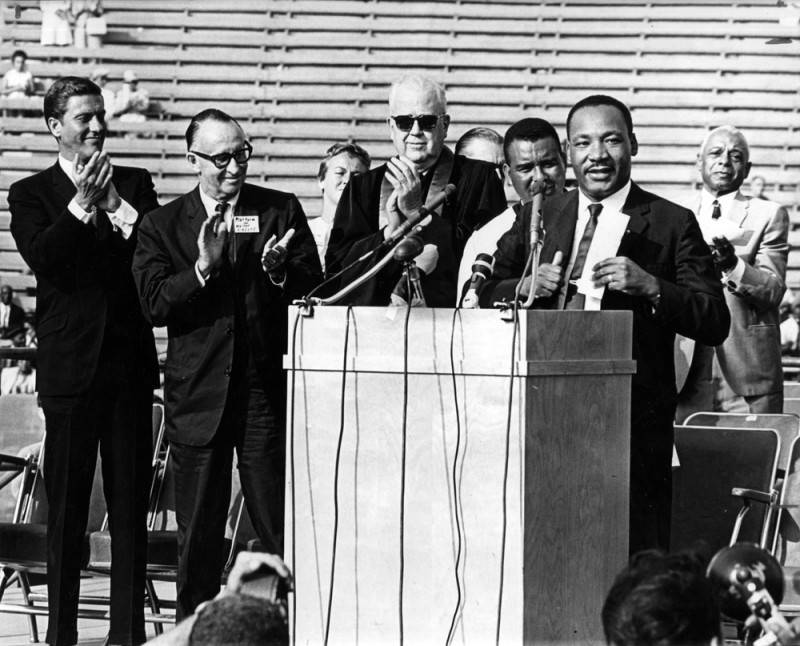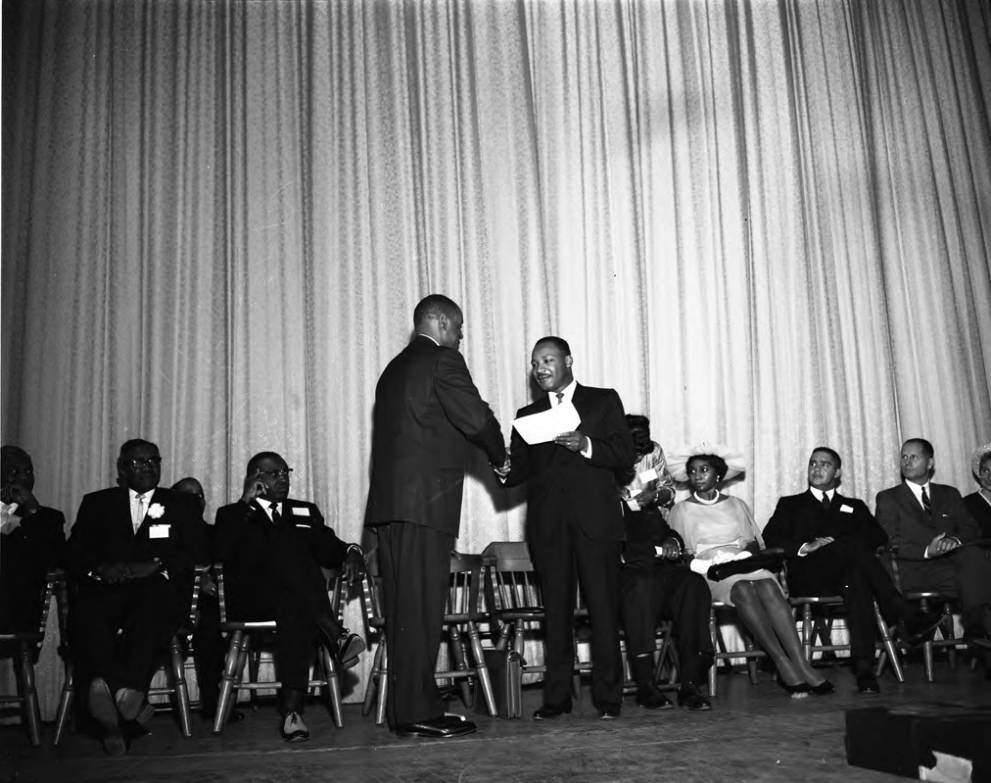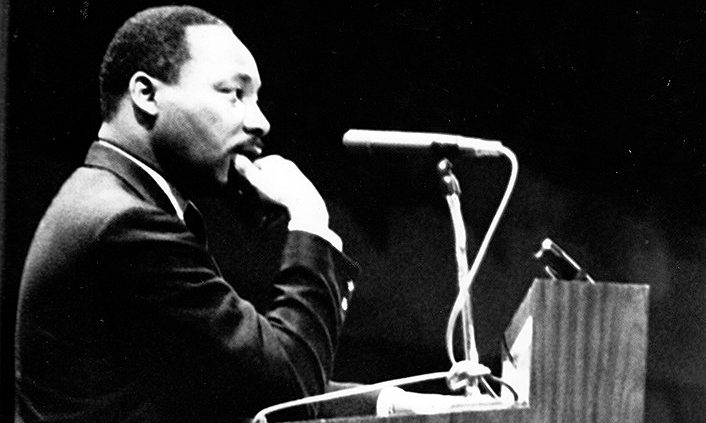52 years ago, a bomb threat interrupted MLK’s speech at Bovard
On the night of October 16, 1967, Dr. Martin Luther King Jr. was halfway through a speech at Bovard Auditorium when the Los Angeles Fire Department received a warning that a bomb had been planted in the theater.
King and an audience of about 1,800 people were forced to evacuate, but quickly returned after the coast was cleared. He went on to finish his speech, calling for legislation to address racial oppression in the United States.
“I’m a Baptist preacher and I’m in the heart-changing business,” King said. “But while morality may not be legislated, behavior can be regulated; and while the law can’t make a man love me, it can restrain him from lynching me.”
The October 17, 1967 issue of the Daily Trojan covered Dr. Martin Luther King Jr.’s speech at Bovard the previous night and profiled him during his visit to Los Angeles.
King visited Los Angeles numerous times throughout the 1950s and 60s — as he pushed for a civil rights platform during the Democratic National Convention, raised funds for the cause at two Freedom Rallies in 1961 and spoke after the Watts Riots in 1965.
Many of these trips took him to USC. He met with a prominent local pastor at Bovard Auditorium in April 1961 and visited the Los Angeles Memorial Coliseum in 1964 to speak at a multi-faith event, “Religious Witness for Human Dignity.”
He came to USC in 1967 as part of the University’s Great Issues Forum, at a time of severe division within the Civil Rights Movement. King’s call for nonviolent resistance clashed with certain branches of the Black Power movement, and his opposition to the war in Vietnam alienated some of his white supporters.
The lead article in the October 17, 1967 issue of the Daily Trojan, “The Calm Martin Luther King,” paints him as a charismatic yet beleaguered leader trying to hold on to a fracturing base.
“Riots do no good,” King said, according to the article. “They just relieve the guilt of the white community.”

His speech at USC came on the heels of the “long, hot summer of 1967,” when a wave of violent protests took place in more than 150 cities — largely in response to police violence and oppression against Black Americans.
In the more than five decades that have passed since King’s speech at USC that October, the U.S. has gone through immense change. More people of color were elected to the 116th Congress than at any previous time in history. But many of the issues he spoke about — from police brutality to lack of economic opportunity — remain pressing for those who celebrate his legacy every January.
“Justice is indivisible,” King said, according to the Daily Trojan report. “But injustice anywhere is a threat to justice everywhere.”


